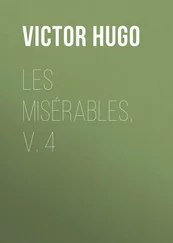One last word about Fantine.
We all have a mother,—the earth. Fantine was given back to that mother.
The cure thought that he was doing right, and perhaps he really was, in reserving as much money as possible from what Jean Valjean had left for the poor. Who was concerned, after all? A convict and a woman of the town. That is why he had a very simple funeral for Fantine, and reduced it to that strictly necessary form known as the pauper's grave.
So Fantine was buried in the free corner of the cemetery which belongs to anybody and everybody, and where the poor are lost. Fortunately, God knows where to find the soul again. Fantine was laid in the shade, among the first bones that came to hand; she was subjected to the promiscuousness of ashes. She was thrown into the public grave. Her grave resembled her bed.
Part 9 Waterloo
Chapter 1 What is met with on the Way from Nivelles
Last year (1861), on a beautiful May morning, a traveller, the person who is telling this story, was coming from Nivelles, and directing his course towards La Hulpe. He was on foot. He was pursuing a broad paved road, which undulated between two rows of trees, over the hills which succeed each other, raise the road and let it fall again, and produce something in the nature of enormous waves.
He had passed Lillois and Bois-Seigneur-Isaac. In the west he perceived the slate-roofed tower of Braine-l'Alleud, which has the form of a reversed vase. He had just left behind a wood upon an eminence; and at the angle of the cross-road, by the side of a sort of mouldy gibbet bearing the inscription Ancient Barrier No. 4, a public house, bearing on its front this sign: At the Four Winds (Aux Quatre Vents). Echabeau, Private Cafe.
A quarter of a league further on, he arrived at the bottom of a little valley, where there is water which passes beneath an arch made through the embankment of the road. The clump of sparsely planted but very green trees, which fills the valley on one side of the road, is dispersed over the meadows on the other, and disappears gracefully and as in order in the direction of Braine-l'Alleud.
On the right, close to the road, was an inn, with a four-wheeled cart at the door, a large bundle of hop-poles, a plough, a heap of dried brushwood near a flourishing hedge, lime smoking in a square hole, and a ladder suspended along an old penthouse with straw partitions. A young girl was weeding in a field, where a huge yellow poster, probably of some outside spectacle, such as a parish festival, was fluttering in the wind. At one corner of the inn, beside a pool in which a flotilla of ducks was navigating, a badly paved path plunged into the bushes. The wayfarer struck into this.
After traversing a hundred paces, skirting a wall of the fifteenth century, surmounted by a pointed gable, with bricks set in contrast, he found himself before a large door of arched stone, with a rectilinear impost, in the sombre style of Louis XIV., flanked by two flat medallions. A severe facade rose above this door; a wall, perpendicular to the facade, almost touched the door, and flanked it with an abrupt right angle. In the meadow before the door lay three harrows, through which, in disorder, grew all the flowers of May. The door was closed. The two decrepit leaves which barred it were ornamented with an old rusty knocker.
The sun was charming; the branches had that soft shivering of May, which seems to proceed rather from the nests than from the wind. A brave little bird, probably a lover, was carolling in a distracted manner in a large tree.
The wayfarer bent over and examined a rather large circular excavation, resembling the hollow of a sphere, in the stone on the left, at the foot of the pier of the door.
At this moment the leaves of the door parted, and a peasant woman emerged.
She saw the wayfarer, and perceived what he was looking at.
"It was a French cannon-ball which made that," she said to him. And she added:—
"That which you see there, higher up in the door, near a nail, is the hole of a big iron bullet as large as an egg. The bullet did not pierce the wood."
"What is the name of this place?" inquired the wayfarer.
"Hougomont," said the peasant woman.
The traveller straightened himself up. He walked on a few paces, and went off to look over the tops of the hedges. On the horizon through the trees, he perceived a sort of little elevation, and on this elevation something which at that distance resembled a lion.
He was on the battle-field of Waterloo.
Hougomont,—this was a funereal spot, the beginning of the obstacle, the first resistance, which that great wood-cutter of Europe, called Napoleon, encountered at Waterloo, the first knot under the blows of his axe.
It was a chateau; it is no longer anything but a farm. For the antiquary, Hougomont is Hugomons. This manor was built by Hugo, Sire of Somerel, the same who endowed the sixth chaplaincy of the Abbey of Villiers.
The traveller pushed open the door, elbowed an ancient calash under the porch, and entered the courtyard.
The first thing which struck him in this paddock was a door of the sixteenth century, which here simulates an arcade, everything else having fallen prostrate around it. A monumental aspect often has its birth in ruin. In a wall near the arcade opens another arched door, of the time of Henry IV., permitting a glimpse of the trees of an orchard; beside this door, a manure-hole, some pickaxes, some shovels, some carts, an old well, with its flagstone and its iron reel, a chicken jumping, and a turkey spreading its tail, a chapel surmounted by a small bell-tower, a blossoming pear-tree trained in espalier against the wall of the chapel—behold the court, the conquest of which was one of Napoleon's dreams. This corner of earth, could he but have seized it, would, perhaps, have given him the world likewise. Chickens are scattering its dust abroad with their beaks. A growl is audible; it is a huge dog, who shows his teeth and replaces the English.
The English behaved admirably there. Cooke's four companies of guards there held out for seven hours against the fury of an army.
Hougomont viewed on the map, as a geometrical plan, comprising buildings and enclosures, presents a sort of irregular rectangle, one angle of which is nicked out. It is this angle which contains the southern door, guarded by this wall, which commands it only a gun's length away. Hougomont has two doors,—the southern door, that of the chateau; and the northern door, belonging to the farm. Napoleon sent his brother Jerome against Hougomont; the divisions of Foy, Guilleminot, and Bachelu hurled themselves against it; nearly the entire corps of Reille was employed against it, and miscarried; Kellermann's balls were exhausted on this heroic section of wall. Bauduin's brigade was not strong enough to force Hougomont on the north, and the brigade of Soye could not do more than effect the beginning of a breach on the south, but without taking it.
The farm buildings border the courtyard on the south. A bit of the north door, broken by the French, hangs suspended to the wall. It consists of four planks nailed to two cross-beams, on which the scars of the attack are visible.
The northern door, which was beaten in by the French, and which has had a piece applied to it to replace the panel suspended on the wall, stands half-open at the bottom of the paddock; it is cut squarely in the wall, built of stone below, of brick above which closes in the courtyard on the north. It is a simple door for carts, such as exist in all farms, with the two large leaves made of rustic planks: beyond lie the meadows. The dispute over this entrance was furious. For a long time, all sorts of imprints of bloody hands were visible on the door-posts. It was there that Bauduin was killed.
Читать дальше












